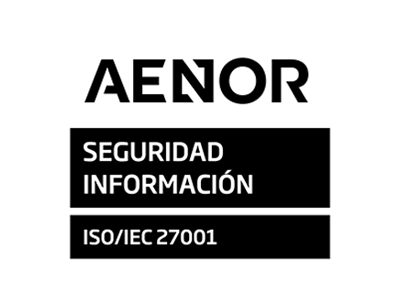Collaborative Intelligence: The Synergy of AI and Medical Writing
July 7th 2023

What do you get when you cross AI, healthcare, and a healthy dose of collaboration? Let’s find out!
In this blog post, we’re diving deep into the impact of efficiency, quality, and collaboration on medical writing, and trust us, you won’t want to miss it. Prepare to be amazed as we explore how AI can turbocharge your productivity, supercharge your content precision, and spark dynamic collaboration within your multidisciplinary teams. Get ready for a valuable read that will revolutionize the way you approach medical writing.
Efficiency: Boosting Productivity with AI in Medical Writing
AI-powered automation tools revolutionize medical writing by streamlining repetitive processes, freeing up valuable time for medical writers to focus on higher-value tasks. With AI algorithms, the research process is streamlined as vast amounts of medical literature are efficiently analyzed, extracting relevant information and key findings in a fraction of the time it would take a human researcher.
Intelligent AI-driven tools provide invaluable assistance in data analysis and literature review, identifying patterns, highlighting key insights, and suggesting potential connections between studies. These tools enable medical writers to navigate complex datasets more efficiently, leading to more accurate and informed writing. Moreover, AI in medical writing workflows offers time-saving benefits by automating citation and bibliography formatting.
By automatically generating citations and bibliographies according to various styles, such as APA or MLA, AI eliminates the need for manual formatting, allowing medical writers to channel their time and energy into content creation rather than tedious formatting tasks. The integration of AI in medical writing truly revolutionizes efficiency and time management, empowering medical writers to focus on delivering high-quality content.
A Real-Life Example
An AI tool such as ‘CiteGenius’ utilizes natural language processing and machine learning to automatically generate accurate citations and bibliographies. By simply inputting the relevant details of the sources, medical writers can rely on this AI tool to handle the formatting, ensuring consistency and saving significant time and effort.
Quality: Elevating Precision and Accuracy in Medical Writing
Unlocking the power of AI in medical writing is like having a brilliant co-writer by your side. AI language models, such as GPT-3, take center stage, helping medical writers draft manuscripts, create summaries, and even generate initial drafts with ease.
But that’s not all! AI brings a whole arsenal of proofreading and grammar-checking tools to the table. These intelligent tools swiftly detect and correct grammar errors, spelling mistakes, and punctuation issues. They even go the extra mile by offering suggestions for sentence restructuring. By incorporating these automated proofreading tools into their workflow, medical writers can ensure their work is of top-notch quality and polished to perfection.
- Consistency: The key in medical writing, and AI algorithms have got your back. They analyze documents, spotting potential inconsistencies in terminology, formatting, or referencing style, and provide real-time feedback and suggestions. This collaboration with AI-powered tools helps maintain a standardized and consistent approach to medical writing, aligning with industry guidelines and best practices.
- Readability: Another crucial factor, and AI-driven readability analysis tools are here to help. These tools assess sentence complexity, vocabulary usage, and overall structure to provide insights into the readability of your content. Armed with this knowledge, medical writers can make informed adjustments, ensuring their work is easily understood and reaches their intended audience effectively.
- Fact-checking: AI is here to lend a helping hand with this daunting task. Medical writers can utilize AI to swiftly cross-reference information with trusted databases, ensuring accuracy and flagging any potential inaccuracies or contradictions for further review. This collaborative approach between AI and medical writers ensures the information presented is reliable and trustworthy, reinforcing the integrity of medical writing.
A Real-Life Example
AI systems like “ManuscriptAnalyzer” can analyze medical manuscripts and flag potential errors or inconsistencies, such as contradictory findings or inaccuracies in references. This helps medical writers identify areas that require further investigation or clarification, ultimately improving the overall quality and reliability of the written work.
Collaboration: Fostering Teamwork and Knowledge Sharing
Imagine collaborating on documents in real-time, regardless of geographical boundaries. AI-powered platforms enable medical writers to work together simultaneously, offering features like version control, document sharing, and commenting. These platforms facilitate efficient communication and collaboration among team members, boosting teamwork and productivity to new heights. The possibilities are limitless when humans and AI join forces, transforming the way we work and deliver exceptional healthcare content.
- Content management systems: Integrated with AI capabilities provide a centralized hub for medical writers to collaborate, store, and access their work. With advanced search functionalities, content tagging, and recommendation engines, these systems enhance information retrieval, knowledge sharing, and collaboration within medical writing teams. It’s like having a well-organized virtual library at your fingertips.
- Chatbots or virtual assistants: Bridge communication gaps between medical writers and healthcare professionals from diverse disciplines. Instant access to information, quick answers to queries, and real-time collaboration are just a conversation away. By fostering interdisciplinary communication, AI expands the knowledge base accessible to medical writers, resulting in more comprehensive and well-rounded medical writing.
- Boundless frontiers: In the era of remote work and virtual teams, AI-powered collaboration tools are a game-changer. Regardless of physical location, medical writers can collaborate seamlessly through real-time communication, document sharing, and task management. These tools ensure efficient teamwork, enabling medical writers to work together effectively, no matter where they are.
A Real-Life Example
A collaborative writing platform such as “WriteHub” allows multiple medical writers to work on a document simultaneously. AI features integrated into the platform suggest edits, track changes, and even provide automated formatting suggestions. This streamlines the collaboration process, promotes consistency, and increases overall efficiency in medical writing teams.
Conclusion
As medical writers navigate the intricacies of their profession, the integration of AI in medical writing proves to be a game-changer. By harnessing the power of automation, AI algorithms, and language models, medical writers can significantly improve their efficiency and productivity. The precision and accuracy of their content are enhanced through automated proofreading and grammar-checking tools, ensuring adherence to guidelines and promoting high-quality work.
Furthermore, AI fosters collaboration by providing real-time platforms, content management systems, and interdisciplinary communication tools. The possibilities are endless when medical writers embrace AI in their workflows.
However, it’s crucial to note that while AI can be a powerful tool, human oversight, and validation are necessary to ensure accuracy and avoid the dissemination of misinformation. Medical writers play a crucial role in critically reviewing and verifying AI-generated content, maintaining the highest standards of accuracy in medical writing.
Find out how our AI-powered smart medical writing solution can help you.
Ready to see what we can do for you?
In the right hands, artificial intelligence can take human performance to a hitherto unimaginable level. Are you ready for evolution?




